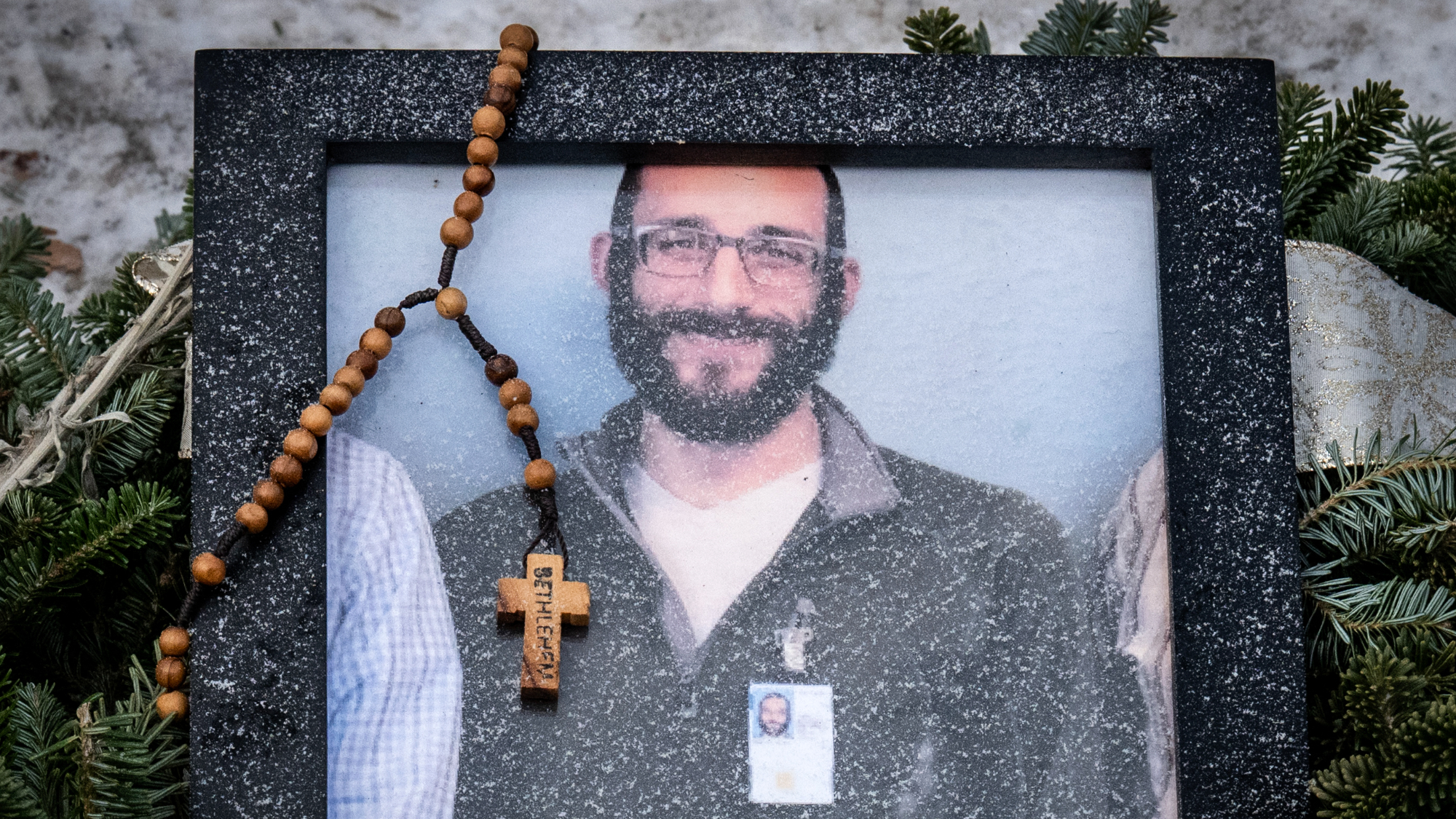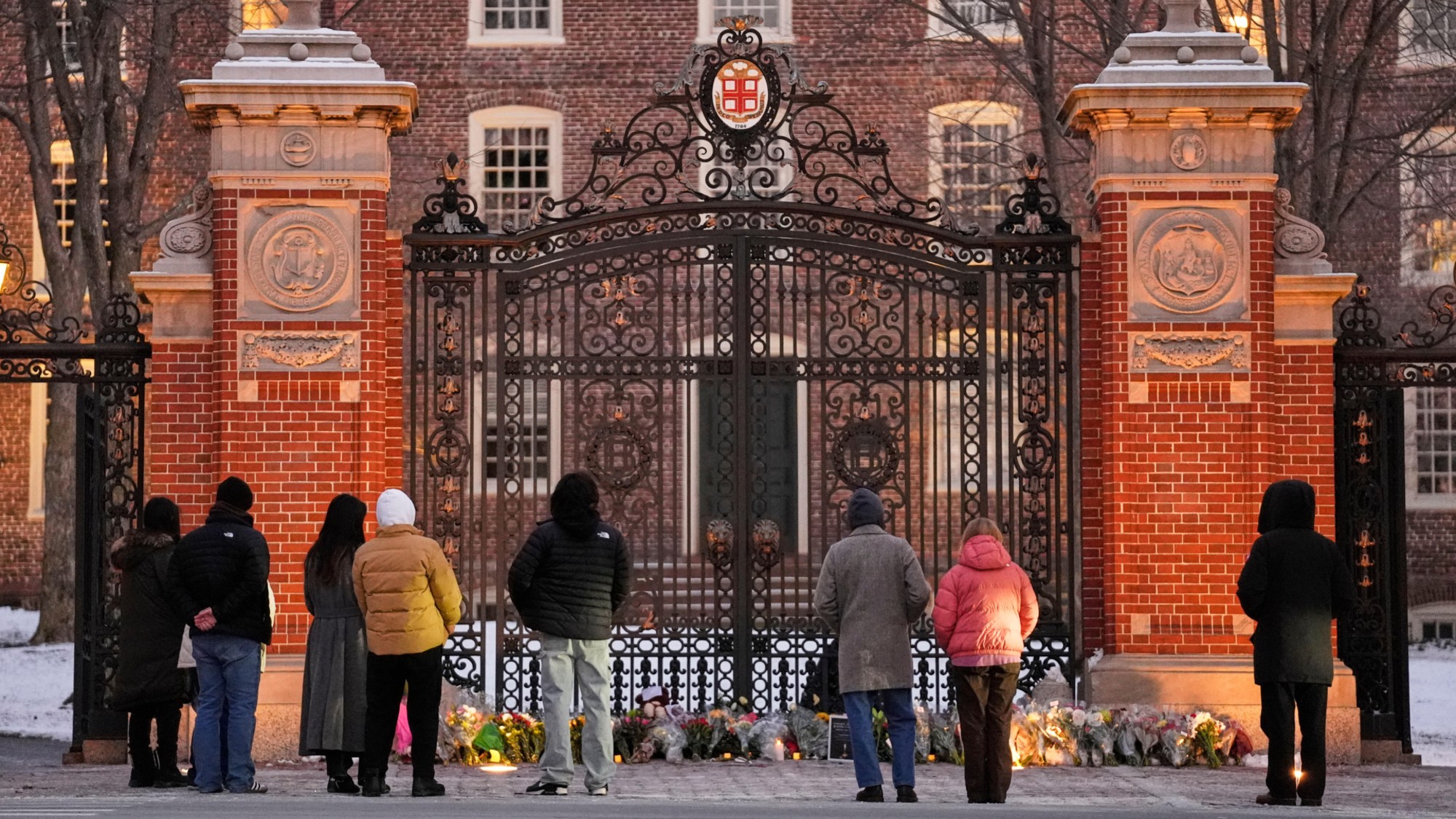'Orwellian nightmare’: passport database to be used to catch thieves
Policing minister wants to use personal data to crack down on shoplifting crime wave

A free daily email with the biggest news stories of the day – and the best features from TheWeek.com
You are now subscribed
Your newsletter sign-up was successful
Britain's passport database could be used to catch shoplifters, burglars and other criminals under plans currently being considered by the policing minister.
Chris Philp said he wanted to integrate information from national databases including the Passport Office and the Police National Database (PND) to "help police find a match with the 'click of one button'", The Guardian reported.
During a fringe event at the Conservative Party conference in Manchester, Philp said he was asking police to search the passport database now, but plans to roll out a new data platform in "the next two years".
The Week
Escape your echo chamber. Get the facts behind the news, plus analysis from multiple perspectives.

Sign up for The Week's Free Newsletters
From our morning news briefing to a weekly Good News Newsletter, get the best of The Week delivered directly to your inbox.
From our morning news briefing to a weekly Good News Newsletter, get the best of The Week delivered directly to your inbox.
The proposal has sparked controversy from both politicians and privacy campaigners.
'Zero-tolerance approach'
Police forces currently "only run facial recognition software through the PND", said The Times, but it "only holds information on people who have been arrested".
Although access is permitted to the passport database, it is not currently being used to search for criminals as it "sits on a completely separate IT system", the newspaper added.
The number of people who hold a UK passport "increased to 45.7 million" in 2021, said the Daily Mirror, citing the most recent census. It is this data that would be drawn upon to help police catch criminals.
A free daily email with the biggest news stories of the day – and the best features from TheWeek.com
Philp wants the police to "start running footage of crime scenes through the separate passport system", The Times stated. He is determined to avoid an American-style situation where some stores have felt forced to leave parts of cities due to high levels of crime.
Consequently, the new scheme is likely to form part of a wider "zero tolerance approach" by police chiefs, who will investigate any crime with a "reasonable line of inquiry", said The Telegraph.
It will give police powers to search facial images from various places including mobile phone or doorbell cameras as well as CCTV.
'Gross violation'
Resistance to the creation of a mass facial recognition system has been widespread.
"Philp's plan to subvert Brits' passport photos into a giant police database is Orwellian and a gross violation of British privacy principles," Silkie Carlo, director of campaign group Big Brother Watch, told the Mirror.
Carlo suggested the "highly inaccurate facial recognition technology" would make Britons into "suspects" and overlook "the real reasons for shoplifting".
Alistair Carmichael, home affairs spokesperson for the Liberal Democrats, also said the party would oppose the proposals "every step of the way".
Unprecedented shoplifting
But while the plans have been criticised, some suggest a major crackdown on crime is the only way to solve a growing shoplifting problem.
Last year was dubbed "the year of the shoplifter" as an "epidemic" is "sweeping Britain's high streets", The Mirror said.
According to the British Retail Consortium, shop thefts have more than doubled in the past four years, climbing to almost eight million incidents in 2022.
A "coalition of businesses and workers" have called for more commitment from police officers in "tackling unprecedented levels of theft", The Guardian added.
At the same Tory party conference fringe event, Paul Gerrard, director of public affairs at the Co-Op, warned that police are "currently failing to attend 80% of cases where a shoplifter has been detained", LBC reported. He added that the cost of shoplifting "adds a 6p transaction tax to every customer's purchase".
Philp also encouraged people to use "the power of citizen's arrest", where members of the public are permitted in certain instances to detain a suspected criminal until the police arrive.
Rebekah Evans joined The Week as newsletter editor in 2023 and has written on subjects ranging from Ukraine and Afghanistan to fast fashion and "brotox". She started her career at Reach plc, where she cut her teeth on news, before pivoting into personal finance at the height of the pandemic and cost-of-living crisis. Social affairs is another of her passions, and she has interviewed people from across the world and from all walks of life. Rebekah completed an NCTJ with the Press Association and has written for publications including The Guardian, The Week magazine, the Press Association and local newspapers.
-
 5 royally funny cartoons about the former prince Andrew’s arrest
5 royally funny cartoons about the former prince Andrew’s arrestCartoons Artists take on falling from grace, kingly manners, and more
-
 The identical twins derailing a French murder trial
The identical twins derailing a French murder trialUnder The Radar Police are unable to tell which suspect’s DNA is on the weapon
-
 Political cartoons for February 21
Political cartoons for February 21Cartoons Saturday’s political cartoons include consequences, secrets, and more
-
 Why have homicide rates reportedly plummeted in the last year?
Why have homicide rates reportedly plummeted in the last year?Today’s Big Question There could be more to the story than politics
-
 How the ‘British FBI’ will work
How the ‘British FBI’ will workThe Explainer New National Police Service to focus on fighting terrorism, fraud and organised crime, freeing up local forces to tackle everyday offences
-
 Demands for accountability mount in Alex Pretti killing
Demands for accountability mount in Alex Pretti killingSpeed Read Pretti was shot numerous times by an ICE agent in Minneapolis
-
 FBI bars Minnesota from ICE killing investigation
FBI bars Minnesota from ICE killing investigationSpeed Read The FBI had initially agreed to work with local officials
-
 ICE kills woman during Minneapolis protest
ICE kills woman during Minneapolis protestSpeed Read The 37-year-old woman appeared to be driving away when she was shot
-
 Campus security is under scrutiny again after the Brown shooting
Campus security is under scrutiny again after the Brown shootingTalking Points Questions surround a federal law called the Clery Act
-
 ‘Stakeknife’: MI5’s man inside the IRA
‘Stakeknife’: MI5’s man inside the IRAThe Explainer Freddie Scappaticci, implicated in 14 murders and 15 abductions during the Troubles, ‘probably cost more lives than he saved’, investigation claims
-
 Executions are on the rise in the US after years of decline
Executions are on the rise in the US after years of declineThe Explainer This year has brought the highest number of executions in a decade